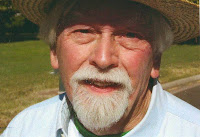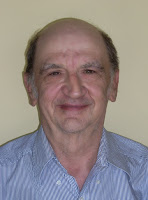Over some 90 decades my life has been one assumption after another, some good, but the majority not so. I recall another old adage, “Never assume; it can make an ass of you and me.” So be alerted. Assumptions can not only be habit forming but lead to some curious circumstances the result of our own making. Again, some good, some not so.
That day I stood on the Capitol steps looking west across Lincoln Street at the Gay Pride celebration in Civic Center Park. It marked the time and place that I committed, after years of stealthy hiding in my hetero-closet, that I joined the tribe. My assumption being that a place called the GLBTQ Center would have room for one more late-blooming queer Troll—a popular term for active geriatrics. That was a good assumption.
It felt so wonderful to be out to family and the three very close straight couples who responded happily for me with the classic rejoinder, “We always knew.” There’s another assumption—who me?
Naively, upon one impulsive search for an evening’s recreation I ventured into the local gentlemen’s athletic club—no, not the DAC or YMCA, but maybe with that song ringing in my ears, Y-M-C-A. This club sported both outdoor and indoor swimming pools and was noted for its hospitality and comradeship. There. ASSUME on that while I commence to relate what followed after I was buzzed in through their hallowed gates.
Many years had passed since my first impromptu visit to these premises, and you guessed it, I assumed nothing had changed but perhaps some twenty-five years on my shoulders. Well things did change that evening. The gate keeper “regretted” to inform me that under new management they had chosen to limit their clientele to what I would call (in the gay vernacular) “Twinks” (free lockers 18-20 aged, and no one that even neared the appearance of being over 32 years of age. It may have amounted to gross discrimination to any gay man even edging the neighborhood of geriatric maturity, no how much dignity and class and elegance a bit of seniority would have leant.
“Sorry, sir, why don’t you try the Uptown on Zuni Street.” Head unbowed I followed his suggestion, no assumption.
I offer this bit of history to those that assume we’re never too old to dream, or assume. As I stated at the beginning of this tale, life is just one big assumption after another until the coroner assumes for you.
I leave you with a very sage assumption by one poet laureate Robert Frost:
© 27 March 2017



